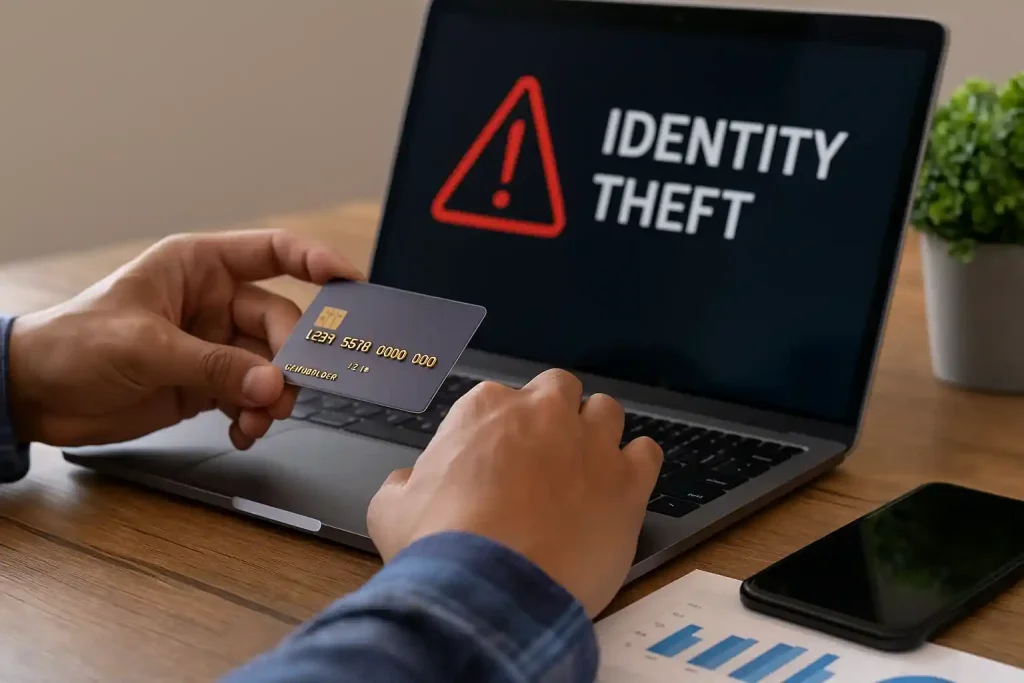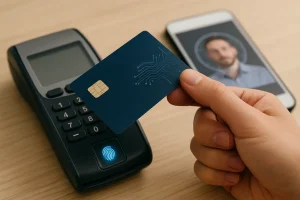In today’s digital age, staying safe from credit card fraud and identity theft is more crucial than ever. With the increasing reliance on online transactions, the risk of unauthorized access to personal information has surged. Americans are particularly vulnerable to these threats, as the use of digital payment methods continues to rise.
Anúncios
Credit card fraud involves the unauthorized use of a person’s card information to make purchases or withdraw funds. Identity theft, on the other hand, refers to illegitimately obtaining someone’s personal identity information, typically to commit fraud or theft. Both pose severe financial and personal risks.
Understanding credit card fraud and its impacts

Credit card fraud can occur in various ways, such as skimming, phishing, and data breaches. Skimming involves illegally capturing card details through a device attached to payment terminals. Alternatively, phishing uses deceptive communications to trick individuals into divulging card information. Meanwhile, data breaches occur when cybercriminals access vast databases of consumer information, often from large companies.
The consequences of falling victim to fraud extend beyond financial loss. Victims often face emotional distress, substantial time investment in resolving issues, and potential legal complications. Fraud-related anxiety can be significant, as it often involves sensitive personal data exposure. Recognizing the signs of credit card fraud early—such as unfamiliar charges or missing funds—can help contain these risks.
Proactive measures to prevent fraud
Individuals can take several proactive measures to protect against credit card fraud and identity theft. One essential strategy is using secure, complex passwords for online accounts, which should be changed regularly. Enabling two-factor authentication on all financial apps enhances security by adding an extra layer of protection.
Another practical approach is controlling the dissemination of personal information online. Sharing sensitive details only on trusted websites, ideally those with HTTPS encryption, reduces exposure to fraud risk. Utilizing virtual cards for online purchases provides extra protection by generating temporary card numbers.
Improving financial security and peace of mind
By adopting informed practices, individuals can significantly enhance their financial security and reduce the likelihood of becoming victims of credit card fraud. It’s critical to stay informed about the latest security threats and continually adjust protective strategies accordingly. Engaging with trusted financial advisors or security experts can provide personalized advice and recommended tools to bolster protection.
Many institutions offer programs designed to safeguard consumer finances, including identity theft insurance or monitoring services. These services often include access to professionals who specialize in detecting and addressing fraudulent activities. Additionally, cultivating a mindset geared towards security awareness not only guards against immediate threats but also builds long-term resilience against evolving cyber risks.
Tools and resources for ongoing protection
Leveraging available tools and resources can be instrumental in combating credit card fraud. Many banks and credit card companies offer fraud detection features, sending alerts for suspicious activity. Setting transaction limits can prevent substantial losses even if card information is compromised. Subscription to identity monitoring services provides constant surveillance of personal data across various channels.
Utilizing financial management apps can help track transactions and budgets, offering immediate insights into any irregular activity. Beyond technology, educating oneself about common fraud schemes through workshops or online courses is invaluable. As the tactics of fraudsters evolve, staying ahead with the right information and resources will ensure personal and financial well-being remains intact.
Staying vigilant in a digital world
In conclusion, protecting oneself against the dangers of credit card fraud and identity theft requires a blend of awareness, technological tools, and proactive measures. As digital transactions become an integral part of life, individuals must remain vigilant, continuously updating and adapting their security strategies.
By fostering a culture of security and leveraging available resources, individuals can protect themselves from financial and emotional distress associated with fraud. Ultimately, informed and cautious financial practices will pave the way for safer and more secure digital interactions.






